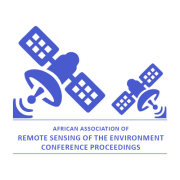

Author(s): Ebenezer Owusu-Sekyere, Peres Ofori, Elvis Attakora Amaniampong
Ghana’s national governance hierarchy has been designed such that city governments tend to have administrative legitimacy to control peri-urban townships. The urban dominance has been to create place out of space through the intermediary of infrastructure. The paper adds the theme ‘landfilling’ as perspective in understanding urban infrastructure dominance. We examined the perception of health effects associated with landfill in Ghana using the mixed method approached. Our ‘before and after’ analysis is framed around the lived experiences of people residing in the vicinity of the “environmental bad”. The results highlight how the flaws inherent in management practices of the facility were a source of health risk to host communities. The health effects were worsened by smoke, dust, flies and mosquitos. The interrogations also revealed contractual arrangements agreed upon before construction of the landfill has often been neglected, a situation that further perpetuated host communities’ health risks. We conclude that contemporary socio-spatial characteristics of peri-urban communities are increasingly becoming incompatible with landfilling as waste management option.